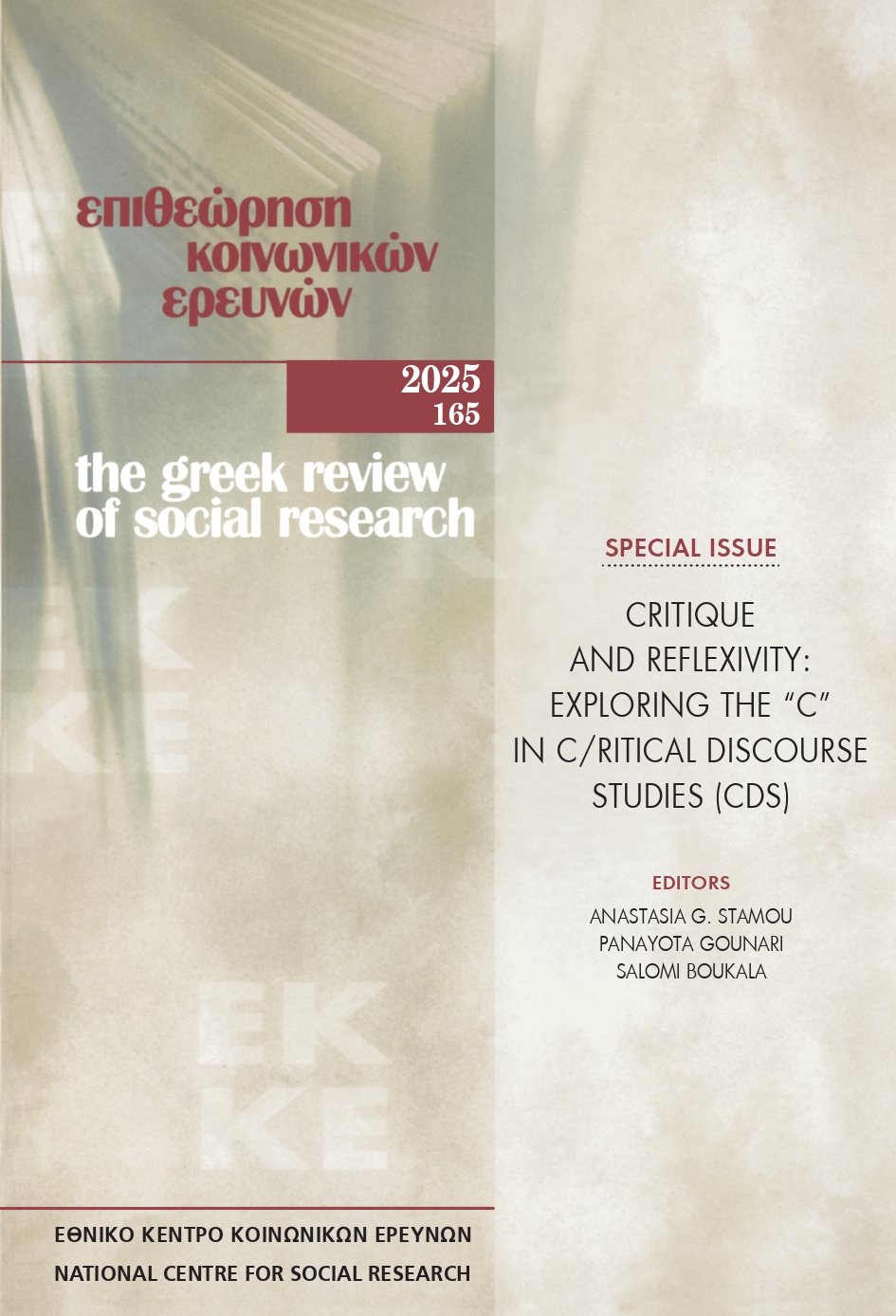From “Guilty Pleasure” to Critique: Critical Discourse Studies, Reflexivity and Pop Culture

Abstract
This reflexive article traces my trajectory in Critical Discourse Studies (CDS) and pop culture, exploring the recurring tension between scholarly “guilt” and personal “pleasure.” Growing up, watching Greek popular TV programs was a cherished pastime among the women in my family, yet it often clashed with the cultural values of our leftist background, which prioritized politically engaged art and critical thinking. I argue that CDS faces a similar challenge, frequently privileging the analysis of elite voices while neglecting the affective dimensions of meaning making. Adopting a more reflexive approach could help CDS become more inclusive, theoretically vibrant, and socially relevant.
Article Details
- How to Cite
-
Stamou, A. G. (2025). From “Guilty Pleasure” to Critique: Critical Discourse Studies, Reflexivity and Pop Culture. The Greek Review of Social Research, 165, 27–38. https://doi.org/10.12681/grsr.42198
- Section
- Articles

This work is licensed under a Creative Commons Attribution-NonCommercial 4.0 International License.
Authors who publish with this journal agree to the following terms:
- Authors retain copyright and grant the journal right of first publication with the work simultaneously licensed under a Creative Commons Attribution Non-Commercial License that allows others to share the work with an acknowledgement of the work's authorship and initial publication in this journal.
- Authors are able to enter into separate, additional contractual arrangements for the non-exclusive distribution of the journal's published version of the work (e.g. post it to an institutional repository or publish it in a book), with an acknowledgement of its initial publication in this journal.
- Authors are permitted and encouraged to post their work online (preferably in institutional repositories or on their website) prior to and during the submission process, as it can lead to productive exchanges, as well as earlier and greater citation of published work (See The Effect of Open Access).


